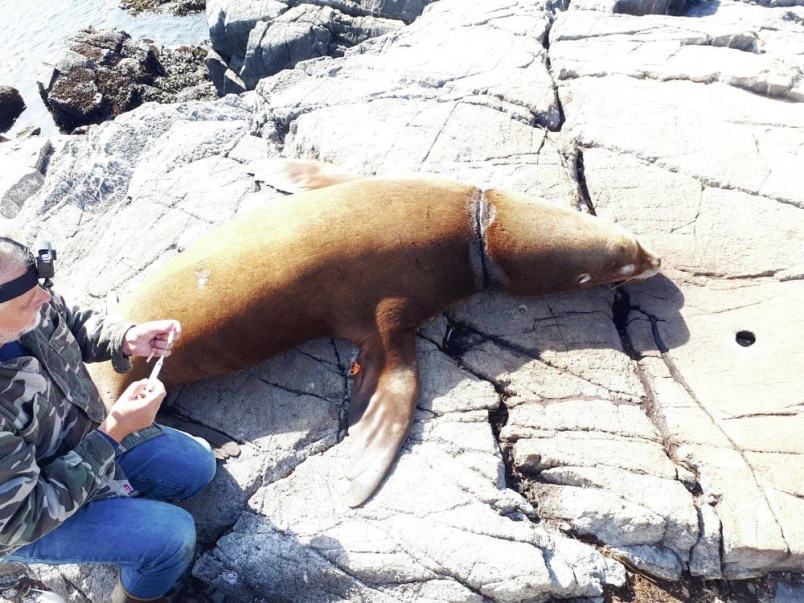A sea lion with a plastic packing band cinched around its neck was rescued near Race Rocks on Sunday, thanks to the combined efforts of rescue teams from Victoria and Vancouver.
The struggling sea lion was first spotted by Mara Radawetz, who lives in the decommissioned lightkeepers’ residence at Race Rocks, just off the southern tip of Vancouver Island. Radawetz, who monitors the Race Rocks Ecological Reserve with partner Kai Westby on behalf Metchosin’s Pearson College, saw the sea lion several times during the week in nearby Juan de Fuca Strait, and said the marine mammal was clearly in distress.
“He was scratching constantly at his wounds, which were cutting into his skin,” Radawetz said.
She contacted Fisheries and Oceans Canada and the Vancouver Aquarium’s Marine Mammal Rescue Centre, Canada’s only dedicated marine mammal rescue facility and one of the largest rescue facilities in the world, to help free the sea lion from the plastic packing band wrapped around its neck.
Two large Zodiac boats carrying the rescue team and several veterinarians arrived Sunday morning, and quickly found the sea lion, Westby said. After being given a tranquilizer injection by veterinarian Martin Haulena from the Marine Mammal Rescue Centre, the sea lion was brought onto the shores of Race Rocks and treated.
The plastic band was removed and tracking tags were attached to the animal’s front flippers. A blood sample was also taken, to assist with future studies. After being given a drug to reverse the effects of the tranquilizer, the sea lion was back swimming within minutes, Westby said. “It was great to see them help out an animal that was in such great pain.”
Suffering caused by man-made material such as plastic is an increasingly common problem among sea lions, Westby said. As permanent residents on Race Rocks, he and Radawetz see their share of injuries to sea lions.
“It can be pretty sad to see. They live for 20 years or 30 years, and as the animal grows, the band cuts through its skin. It becomes a really painful-looking wound.”
This article originally appeared here.




